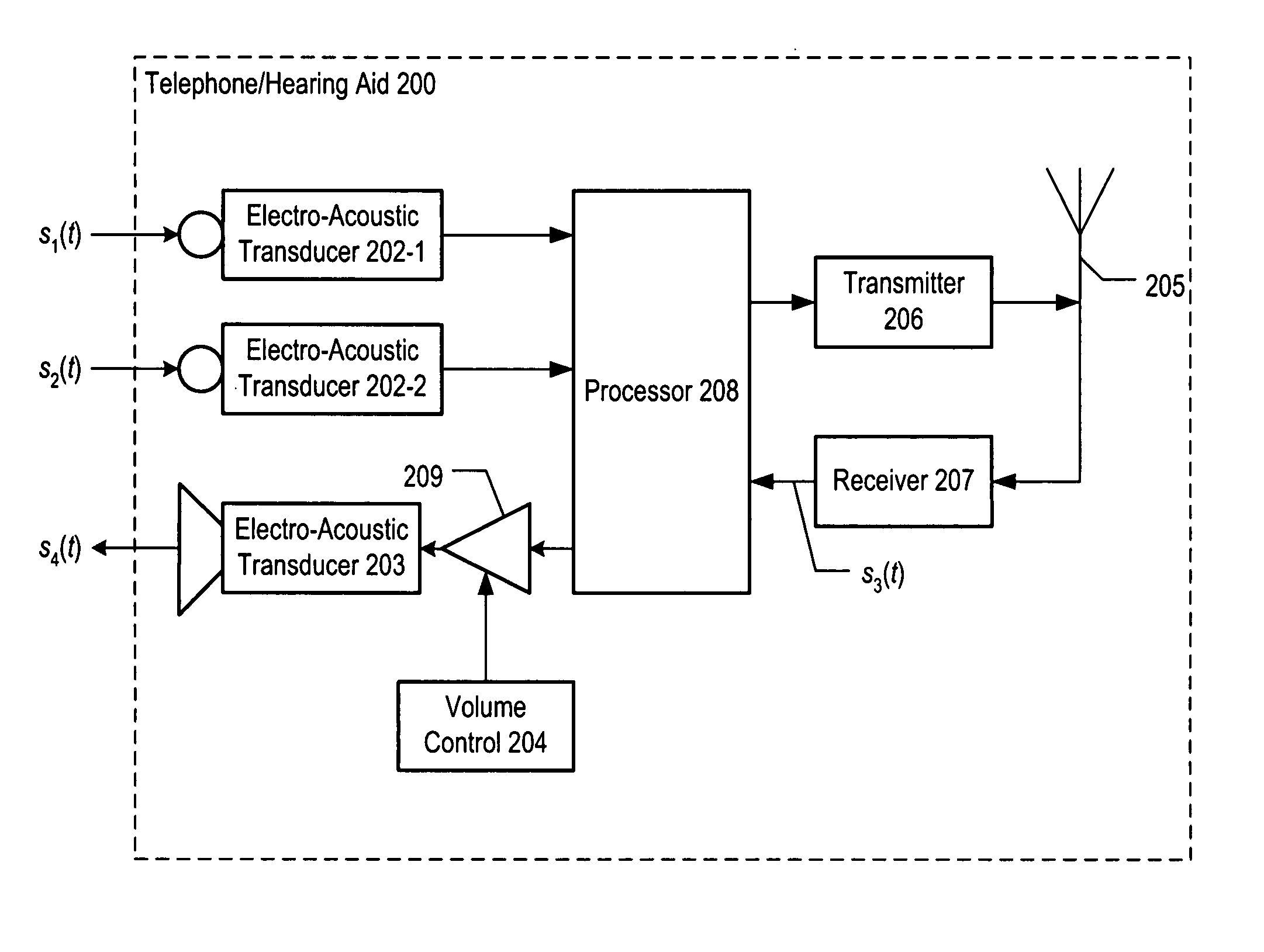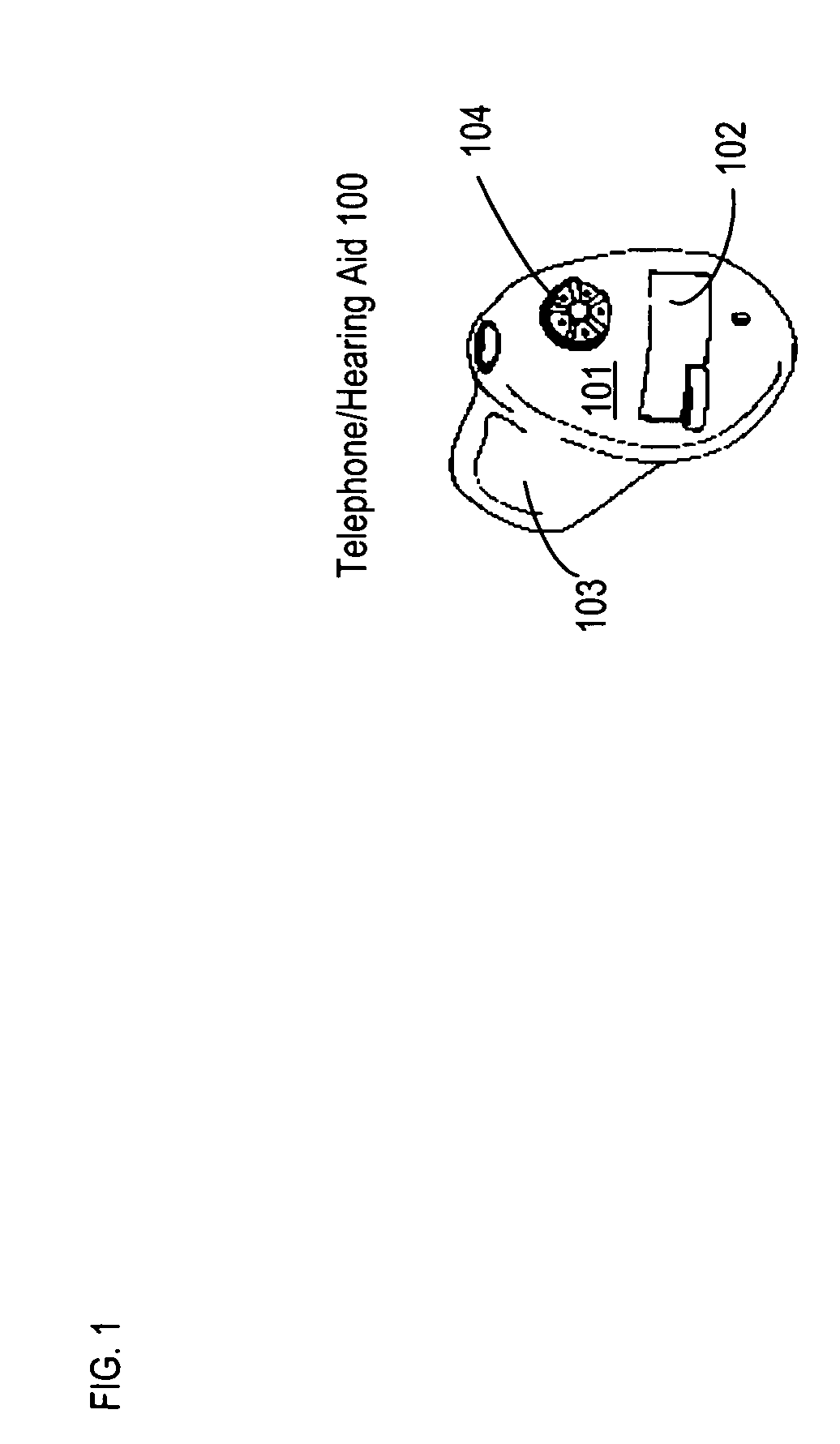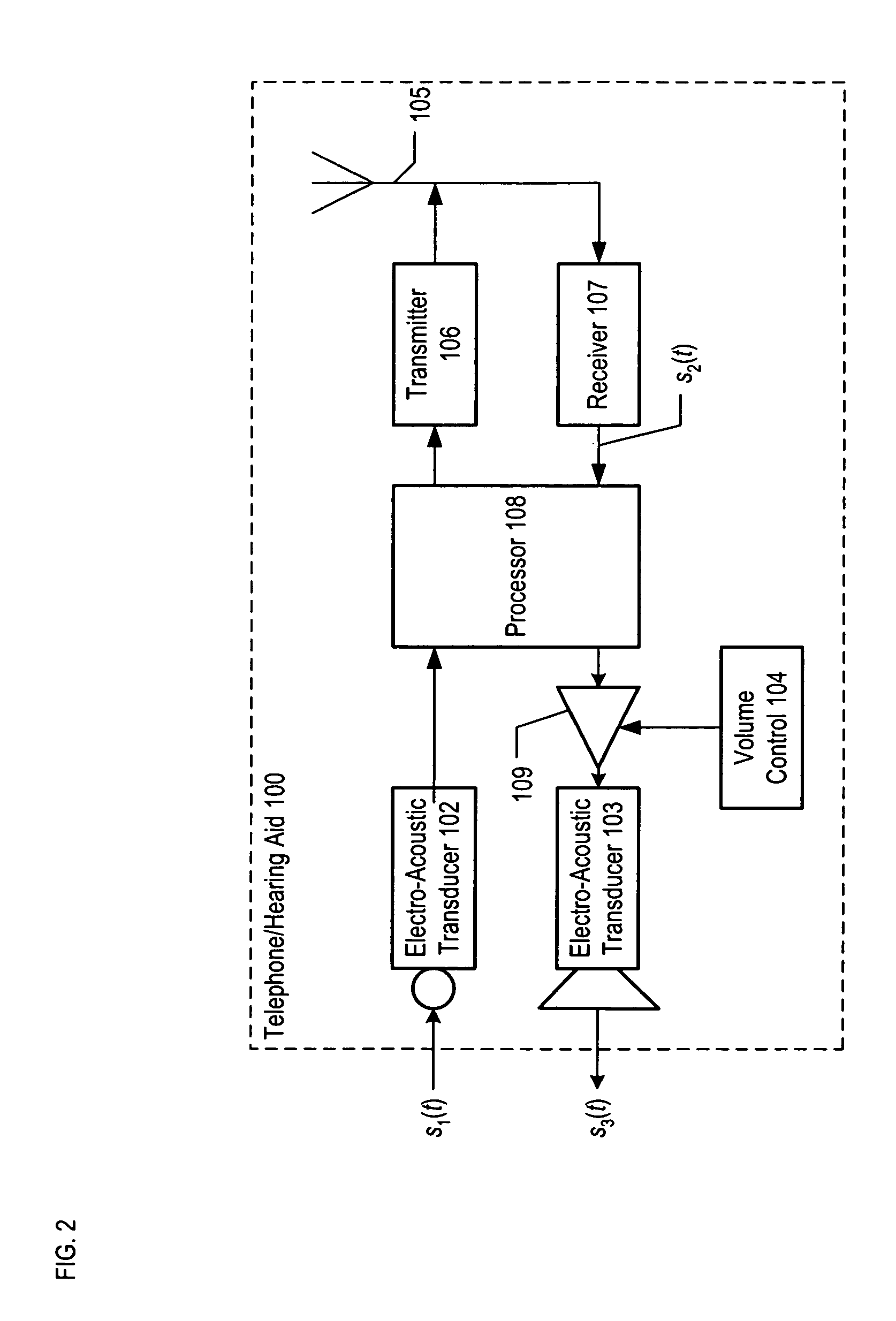Telephone with integrated hearing aid
a technology of hearing aids and telephones, applied in the field of telecommunications equipment, can solve the problems of dangerous or disadvantageous complete off of hearing aids while a call is in progress, and achieve the effect of easing the problem of wearing a hearing aid and an in-ear telephone simultaneously
- Summary
- Abstract
- Description
- Claims
- Application Information
AI Technical Summary
Benefits of technology
Problems solved by technology
Method used
Image
Examples
Embodiment Construction
[0014]FIG. 1 depicts a rendering of telephone / hearing aid 100 in accordance with the first illustrative embodiment of the present invention. As depicted in FIG. 1, telephone / hearing aid 100 comprises: housing 101, microphone 102, speaker 103, and volume control 104. In accordance with the first illustrative embodiment, telephone / hearing aid 100 is a wireless telephone (e.g., a cordless telephone, a cellular telephone, etc.) that operates with the telephone system via radio rather than via a wire. It will be clear to those skilled in the art, however, how to make and use embodiments of the present invention in which telephone / hearing aid 100 is a wireline telephone.
[0015] Housing 101 is designed like a hearing aid so that it can be worn within the external auditory meatus and outer ear. It will be clear to those skilled in the art how to make and use housing 101. Microphone 102, speaker 103, and volume control 104 are all described in detail below.
[0016]FIG. 2 depicts a block diagr...
PUM
 Login to View More
Login to View More Abstract
Description
Claims
Application Information
 Login to View More
Login to View More - R&D
- Intellectual Property
- Life Sciences
- Materials
- Tech Scout
- Unparalleled Data Quality
- Higher Quality Content
- 60% Fewer Hallucinations
Browse by: Latest US Patents, China's latest patents, Technical Efficacy Thesaurus, Application Domain, Technology Topic, Popular Technical Reports.
© 2025 PatSnap. All rights reserved.Legal|Privacy policy|Modern Slavery Act Transparency Statement|Sitemap|About US| Contact US: help@patsnap.com



